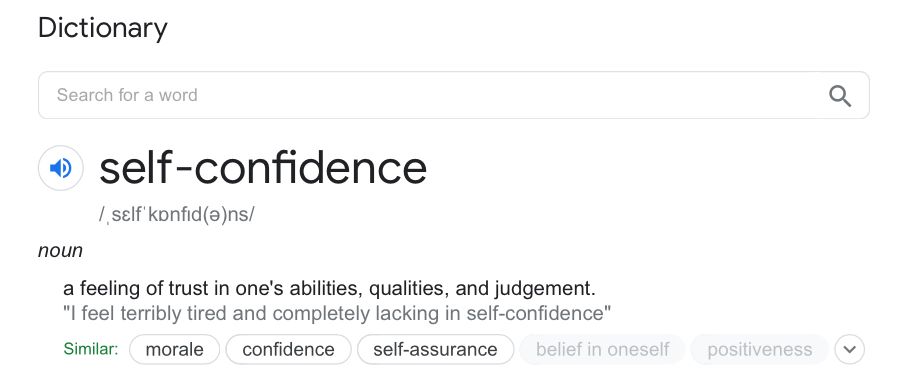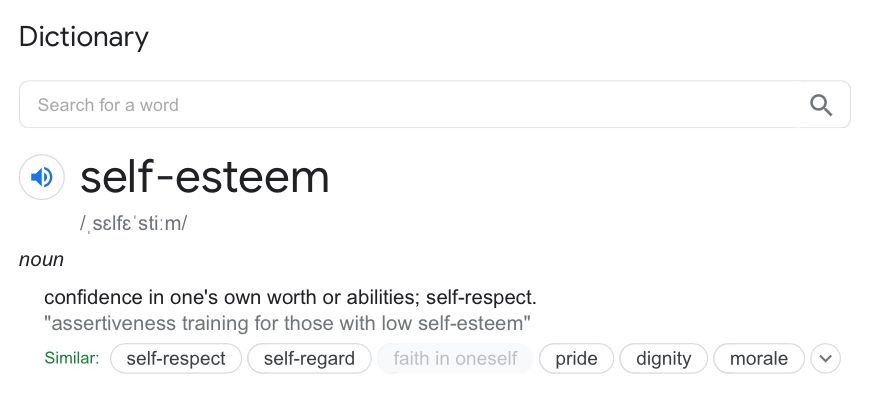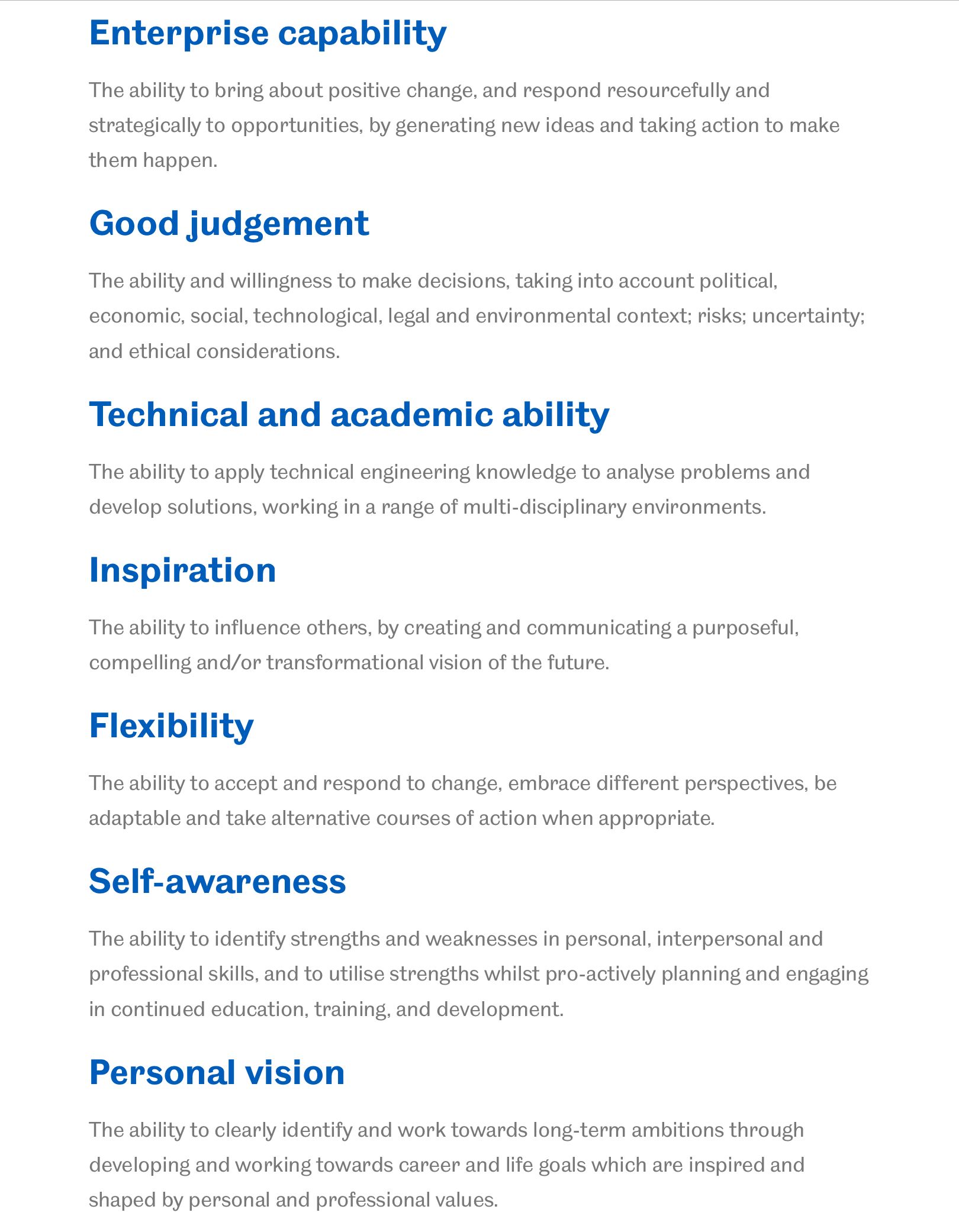Self Confidence, Self Esteem and Taking Back Control

"Confidence is not ‘they will like me’. Confidence is ‘I will be fine if they don’t.'"
It’s one of those qualities that everyone wants. Seeing someone being unapologetically themselves, doing something with complete faith, unafraid to stand out and be different - it’s hard not to smile when you see it, at least for me.

Confidence, specifically self confidence, is a skill I’ve started to think a lot more about, especially during my time at university - I started my first semester as a fresher, anxious about living on my own and doubting how I'd make ends meet by myself. But I call self confidence a skill because it’s something I’ve trained over time; and although there’s still a lot of work to do, I think I’ve made decent progress.
I wanted to write about it here because I see it as one of the most important skills to learn growing up. Turning 20 and making the change from teenager to young adult really had a profound effect on me: I felt it was finally time to start being more open to new experiences, and sharing what I know (I talk about this more in my last article (https://www.mohammadaskari.com/the-beginning/).
Self confidence is the pillar that all of that stands on - without it, I wouldn’t have been able to start a blog, make friends at university, and have so many other new experiences (a few of which I’ll talk about later).
So this is going to be a deep dive on self confidence and self esteem: what it is, why it’s good, how we can build it in our own lives, and some of my personal experiences in developing it.

What is Self Confidence/Self Esteem?
It’s useful to first spell out what we actually mean when we talk about self confidence, and self esteem, which goes hand in hand with it.
Here’s what a few quick google searches show:


Now obviously, the two sound almost exactly the same here. But there’s a subtle difference, and it relates to us as individuals.
Here’s how I would describe them:
Self confidence is what you project externally into the world, about your own abilities to overcome the challenges that you face. Whether that’s passing a test, doing well in a job interview, or presenting to a crowd.
You know when someone is self confident because it radiates from them - their movement, their speech and facial expressions, all of it shows their enthusiasm for whatever they’re doing.

Self esteem, on the other hand, is what you perceive internally, about how much you value yourself. It’s invisible - what people see as high self esteem is actually just confidence. Real self esteem can’t be seen by anyone else, because it’s dependent on the things you say and think about yourself. Your worth as a human being, in your own eyes.
It’s also important to note that self confidence is not a ‘one size fits all’ quality - you can be confident in one aspect of your life, say, cooking, but a complete wreck in another, like presenting in front of an audience.
Self esteem however, is all encompassing. It's the overall sense of worth you feel towards yourself - how much you like and love yourself, regardless of what happens in your life.

So even though they're used interchangeably, these are actually two very different qualities. And in my own life, I've realised that both are equally necessary for us to be able to work towards our goals effectively.
They're inseparable from each other, because how you change one will affect the other. In fact, from my experience, they feed into each other: when we have high opinions of ourselves, we naturally start to feel more capable and able to handle what life throws at us.

The positive beliefs we hold internally will reflect themselves in our behaviour towards others. This works in the other direction as well - negative beliefs about our worth will lead us to doubt our capabilities, and might actually cause us to struggle more.
When you hold yourself in high regard - when you tell yourself you're doing a great job, no matter what anyone else says - you give yourself the opportunity to continue being you. Doing what you really want to do and getting better at it regardless of how many times you fail, or how many people tell you that it's pointless.

And similarly, there's that common saying that people use for confidence: 'fake it till you make it'. The reason it works is, projecting confidence outwardly as a behaviour can actually lead you to convince yourself of your capability, which in turn increases your self esteem.
How to Develop Self Confidence and Self Esteem
So that’s all well and good, but how do we improve? What can we actually do to make us feel better about ourselves, or make positive changes in our lives?
I’m going to refer to a brilliant TED talk by Dr Ivan Joseph, which, for me, has turned into a timeless source of wisdom when thinking about the topic of confidence - you can watch it here, but I’ll be deriving the lessons I got from it below.
1: Self confidence is built from repetition and persistence.
This is especially true when we take small steps outside of our comfort zone each time. In the TED Talk, Dr Joseph talks about the experience of presenting his own work to the audience - and how the consistent habit of practice; first in the mirror, then to his wife and kids, and then a gradually increasing number of people, allowed him to let go of his nerves completely when it came to performing on stage.
This technique of stepping outside of our comfort zone little by little is a guaranteed way to get better at accepting uncertainty - which is the foundation that self confidence is built on. It combats what we as humans often fear the most: the unknown.
Once you become comfortable embracing that discomfort in small doses, you expand your reach, and your capability to deal with new challenges.
So make it a habit to do something positive and harmless, but uncomfortable, everyday - turn the water in your shower to cold, smile at strangers when you're out in public, whatever makes you feel uneasy - you're the best judge. It prepares you to deal with the uncertainty that life throws at you in other ways.
2: Your self talk and thoughts influence your actions.
It’s in those quiet moments in your bedroom, when you’re brushing your teeth, when nobody else is around you, that you really get a glimpse of the things you tell yourself. Those moments are the perfect time to reaffirm the control that you have over your life, because they're often the most influential for your self esteem.
The more we tell ourselves that we're capable of succeeding and overcoming what challenges we face, the more likely it is that we will actually be able to. This is an underrated and often unacknowledged, but guaranteed truth about life. As the quote goes, "whether you think you can or you think you can't - you're right".
If you want to get better at self talk and having positive thoughts, use your environment to your advantage. Whether that's through listening to empowering talks, podcasts, books or music - control the inputs to your mental state to give you the best chance of success.
“I am the captain of my ship and the master of my fate” - Dr Ivan Joseph's self talk affirmation.
3: Distance yourself from people who tear you down.
It's important to recognise here that there’s a difference between constructive criticism on the things you can change, and destructive judgements on who you are.
Surround yourself with people who make it clear they support your wellbeing and growth, and try to spend less time with people who cast judgement on you. Whilst everyone has different experiences, this is a good rule to follow in general.
That's not to say you should disregard anyone who says anything bad about you - an outside perspective is often just what we need to move past our own obstacles. But noticing when someone is criticising you needlessly or with bad intention is also very important to protect your own mental state.
As humans, it's very easy for us to find flaws in others. Everyone is likely to find something to dislike about you. But if you start disliking yourself, there's nobody left to lift you up and push you towards success. Hence why it's important to protect your own self talk and self esteem by moving away from those who judge you, and moving towards those who teach and support you.
4: Self confident people interpret feedback how they choose to.
They choose not to be demoralised by rejection, even after trying time and time again. This is a really difficult skill, but like lesson 1, we develop it through repetition.
In the same way you can go to the gym to exercise muscles, rejection is the exercise for your self confidence. Once you fully internalise the fact that others' opinions of you don't have to affect your opinion of yourself, you become unstoppable.
Confidence in the Professional World
Academics and work life are usually the places where people talk about rejection - seeing the typical email time and time again in your inbox: 'Thank you for applying. Unfortunately...'
It's a necessary evil for getting any sort of experience or job, but it can be demoralising. Still, it's definitely not hopeless to keep trying, and I learnt that over time.

The year before last, when I was looking for work experience over the summer, I made an effort to write as many applications as I could. Cold emailing and filling in online forms, I worked my way through a list of opportunities I found interesting. I think at the time, I wasn't even expecting success at any specific organisation - I'd just resorted to throwing my CV at as many email addresses as I could find.
And surprisingly, that method worked. I was accepted for a week of work experience at Airbus, looking at the manufacturing process of wings for the A320, A321 and a few other aircraft. I saw what it was really like working as an engineer, and got the bonus of watching a Beluga takeoff.

It was a completely new experience, and it taught me so much - not just technical knowledge, but communication - getting to know complete strangers, and making friends who I still talk to today.
In the same way, earlier this year I applied for a place in SELA, the Sheffield Engineering Leadership Academy - a programme run by my university.
In all honesty, I waited until the exact deadline to finish and submit my application (I don't recommend doing this) - my goal was just to submit something, anything, and I didn’t set my expectations any higher than another rejection email.
But I got accepted for interview, and then offered a place. None of that would have happened if I'd told myself it wasn't worth it to try (and I was very close to doing that). It's no coincidence that the foundational attributes listed on the SELA website all require self confidence to some extent.

It's a necessary skill to have in all jobs, because it's a constant reminder to the people you work with that they can trust you to work to your fullest extent. People will only believe in you when you believe in yourself.
Confidence as an Introvert
As an introvert, I'd say I have a pretty boring and uneventful life by most people’s standards: spending most of my time by myself, usually at home, writing, reading, enjoying peace and quiet. The few times I do go out with friends, I really value the experience, but I leave it feeling tired, albeit happy that I got to be with them.
I went through the same struggles that a lot of teenagers do growing up, feeling like I didn't really fit in with the people around me at the time. But learning more about confidence led me to understand that it's a universal quality, regardless of how similar or different you are to other people.
When you can derive your sense of self worth, your self esteem, internally, from the things you say to yourself, vs externally, from the compliments or words of encouragement people give you - you provide yourself the power and freedom to achieve whatever you want.
When you start to separate yourself from the idea that:
A - you absolutely need people to like you (the natural biological response that says you need to stay accepted within your community/society to survive)
and
B - you need to appear a certain way for people to like you (say or do specific things, or show people how interesting your life is)
you stop being so reliant on validation, and start to feel both at peace, and more confident with yourself.
I say these things as lessons I've come to understand, but still not fully internalised - I know I have a lot of progress to make too, but as of right now, it seems like following them has brought me to a better place, where I can focus on my long term happiness and success.
This song seemed like a good fit for this article because it relates to one of my earlier tips about listening to things that empower you - and I think it sums up the mindset of living confidently pretty well. I have an entire playlist dedicated to motivating music, and I've found it's really helped me to go after my goals.
On the off chance that you've read something on here and loved it, or want to read more, feel free to shoot me a message on my socials:
- @moh_askari on Instagram
- @MohammadAskari_ on Twitter
- Mohammad Askari on Facebook
The feedback helps massively. Thanks!
